Charles Joseph Liteky, a former Army chaplain, Vietnam War Medal of Honor recipient and peace activist, died of a stroke at the San Francisco Veterans Administration Hospital on Jan. 20, 2017. He was 85-years-old.
At The Beginning of Charles Liteky Military Service
Charles Liteky was born in Washington, D.C. on Feb. 14, 1931, the son of a crusty career sailor who served 33 years in the Navy, leading to frequent moves as he was growing up. In 1948 when his father was stationed at Jacksonville Naval Air Station, the darkly handsome, 6-foot-1, 160-pound senior was the charismatic quarterback on the Robert E. Lee High School’s football team and was known to have broken a whole lot of girls’ hearts.

Following his graduation from high school, he attended Chipola Junior College and the University of Florida before transferring to an Alabama seminary affiliated with the Missionary Servants of the Most Holy Trinity. Now known as Trinity Mission, the group is a Catholic congregation “working among the poor and abandoned” across the United States and Latin America. The significance of the school direction had a major impact on the way his life was lived.
Ordained in 1960, under the Catholic name Angelo, he worked for six years at churches in New York, Virginia and elsewhere in the country. When he heard reports of a shortage of Catholic chaplains in the Army, he jumped at the chance to volunteer, saying later that he believed he “was doing God’s work.”
Charles Liteky went to Vietnam in 1967 and served as a chaplain in the Headquarters and Headquarters Company of the 199th Infantry Brigade where he frequently accompanied rifle companies in the field. On Dec. 6, 1967, near Phuoc-Lac, Bien Hoa Province he was accompanying A Company, Battalion, 12th Infantry Regiment on a search and destroy mission when the company came under heavy fire from a numerically superior enemy force. Seeing two wounded men lying 50 feet from an enemy machine gun, he rushed forward and shielded them with his body. Once the volume of enemy fire decreased, he dragged the two wounded to the safety of the medevac helicopter landing site.
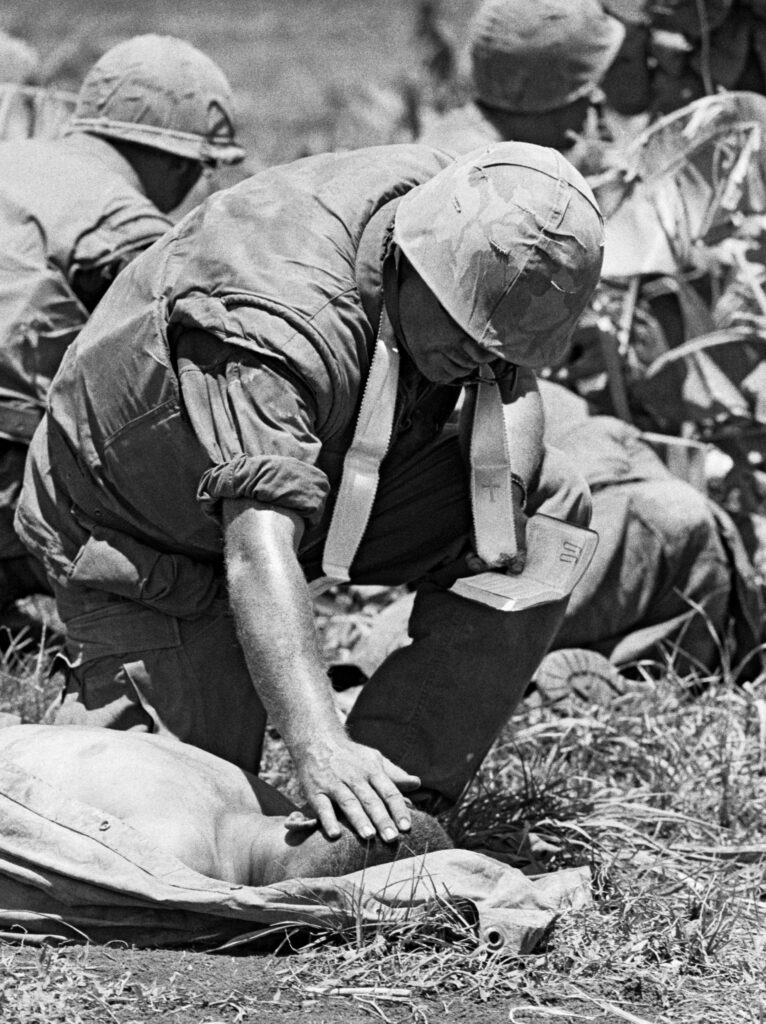
Although wounded in the neck and foot, he continued exposing himself to deadly enemy fire to continue saving additional wounded and administering last rites to the dying. When the medevac helicopter landing zone came under deadly enemy fire, he stood in the open to direct helicopters in the area where the badly wounded were waiting for evacuation and remained until they flow out of the area with their precious cargo. Time after time he returned to the bloody battlefield in spite of shrapnel wounds in his neck and foot. Noticing a seriously wounded man too heavy to carry, he rolled on his back, placed the man on his chest and through sheer determination, crawled back to the landing zone using his elbows and heels to push himself along.
As a Chaplain, he was unarmed but at one point he picked up an M-16 rifle belonging to a fallen soldier. He’d been trained. He was not a pacifist. He knew what to do with it. But after a few seconds, he dropped it, thinking to himself: “Holding a weapon now wouldn’t that be a hell of a way for a priest to die?”
Charles Liteky’s Heroic Actions
After the wounded were evacuated, he returned to the perimeter to encourage the remaining soldiers to hold on until the next morning, it was discovered that despite painful wounds, Liteky carried a total of twenty wounded soldiers to safety during the savage battle. For his heroic actions and disregard for his own safety, he was awarded the Medal of Honor.
One of the survivors of the deadly battle later told a reporter, “When Captain Liteky exposed himself to enemy fire for the first time, we knew we’d never see him again. And by the end of that day, we just knew he could walk on water.”
Returning from Vietnam as a national hero, newspaper editorials praised him. A Jacksonville journal couldn’t help but note that the rugged and handsome Army hero chaplain had the look of a “movie war hero.”
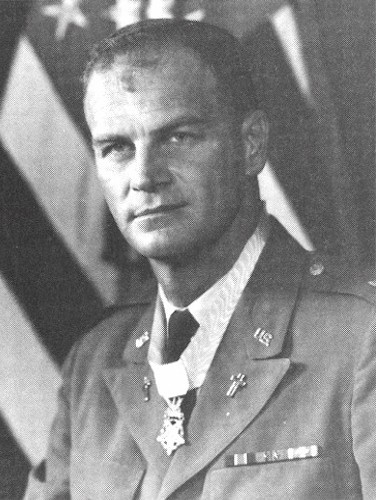
Liteky would soon volunteer for another tour of duty in Vietnam. He was now in his late 30s and he’d seen what the Communists had done to the Vietnamese and American soldiers and knew where his duty and where his God required him to be. “I had really developed sympathy and admiration for the young men. A lot of them were there against their will,” he said.
Charles Liteky left the Army in 1971, the year he turned 40. It was a time of change, of questioning his faith. He thought often of advice a professor had given him between his two Vietnam tours: “You need to rise above the assumptions of your subcultures.” Troubled by what he’d seen in the war, he took a yearlong leave of absence from the priesthood. He lived for a time in a cabin on a Florida Island, surviving on a pension given Medal of Honor recipients; worked at a halfway house for veterans in Cleveland and made candles.
How Charles Liteky Became An Outspoken Peace Activist
Struggling with celibacy, he had a couple of affairs and romantic relationships and made the difficult decision to leave the priesthood permanently in 1975, feeling as if he’d let God down. “They used to talk about celibacy being a gift. And after a while, I thought, ‘Well, I didn’t get the gift.'”
He eventually moved to the West Coast, where no one knew him, and gravitated toward cosmopolitan San Francisco. While working for the Veterans Administration, he met and married a peace activist and ex-nun, Judy Balch in 1983. Through her, he became acquainted with the plight of Central American refugees who told stories of murder and torture in testimonials at San Francisco’s St. John of God Catholic Church. Not wanting to believe it at first, Liteky kept going to more of these meetings until it became clear to him that these people weren’t making it up. It was for him transformational.
Judy encouraged him to work for social justice and urged him to go with other veterans to several Central American countries where the U.S. government had intervened militarily by providing both advisors and war equipment.

Taking her suggestion, he traveled with others to El Salvador, Nicaragua, and Honduras to witness firsthand right-wing rebels groups murdering and torturing their own citizens. The horror he saw took him back to Vietnam. “I was ashamed of my country. And I was ashamed I’d participated in the same thing in Vietnam.”
He was especially struck by a group of women called Mothers of the Disappeared who searched grisly photos of hundreds of massacred people, looking under the blood for missing family members.
After what he saw and experienced in Central America and two decades after President Lyndon B. Johnson placed the Medal of Honor around Liteky’s neck, he transformed himself from a reticent war hero into an outspoken peace activist.
He began the public protests that would occupy him for the rest of his life, the peace groups, fasts, vigil, and imprisonment. Along the way, his religious faith – which had been so important for so long – was transforming.
Lobbying against U.S. foreign policies in Central American in the mid-1980s, he walked the halls of Congress trying to convince politicians to oppose the Reagan administration’s support for right-wing groups in Nicaragua and El Salvador.
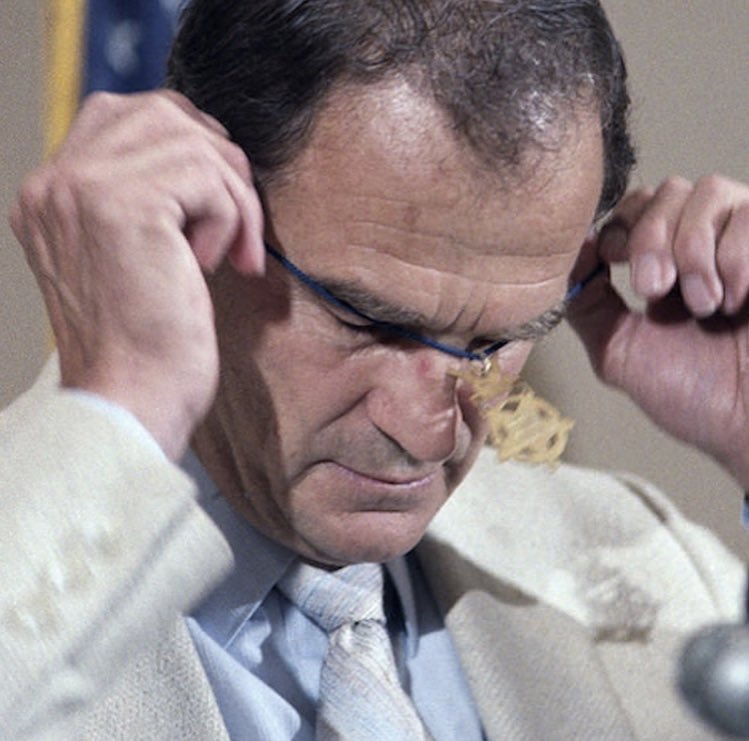
When that failed, on July 29, 1986, after nearly 20 years after his heroic actions in Vietnam, he left the Medal of Honor and a letter to Ronald Reagan at the Vietnam Veterans Memorial in Washington, D.C. in protest of the country’s foreign policy in Central America, where U.S.-backed dictators were fighting bloody wars against left-leaning rebels. In doing this, he became the only recipient to have denounced the medal.
Giving it up, he said later, was not hard. He felt as if it was the only thing he could do, given his anger at his country. His chief regret was not acting earlier, during the Vietnam War. “I accepted it, but I wish now that I hadn’t,” he said. “I wish I could have woken up when I was there and protested the war.”
Later than a month later, he and three other veterans engaged in a 47-day hunger strike on the steps of the U.S. Capitol, consuming nothing but water until the near-death of one striker convinced them to break their fast.
In the 1990s and 2000s, he turned his attention to protesting against the U.S. Army School of the Americas at Fort Benning, Georgia, (now known as the Western Hemisphere Institute for Security Cooperation) where the U.S. Army trained anti-communists from Central and South American and the Caribbean, including Panamanian strongman Manuel Noriega.

With Roy Bourgeois, a Maryknoll priest and founder of the Americas Watch, based outside Fort Benning, he protested and fast with Liteky. Together they participated in annual marches on the Army school and was twice imprisoned for trespassing. In 1999, Mr. Liteky, his brother Patrick Liteky and Bourgeois were arrested for carrying vials of their own blood onto the military base and splashing it on the walls. Liteky served two consecutive six-month sentences for trespassing and spent his last 70 days at Lompoc Prison in solitary confinement, according to a 2001 story in the San Francisco Chronicle, “because he refused to work for what he considers an immoral prison industry.”
In 2003, he and other peace activists traveled to Baghdad to witness the U.S. war effort in Iraq and work at an orphanage and at hospitals. They also gave arriving U.S. military personnel copies of anti-war statements. When Charles Liteky felt the ground shake during the bombardments, he said he now knew what it is like to be on the killing end of American bombs.
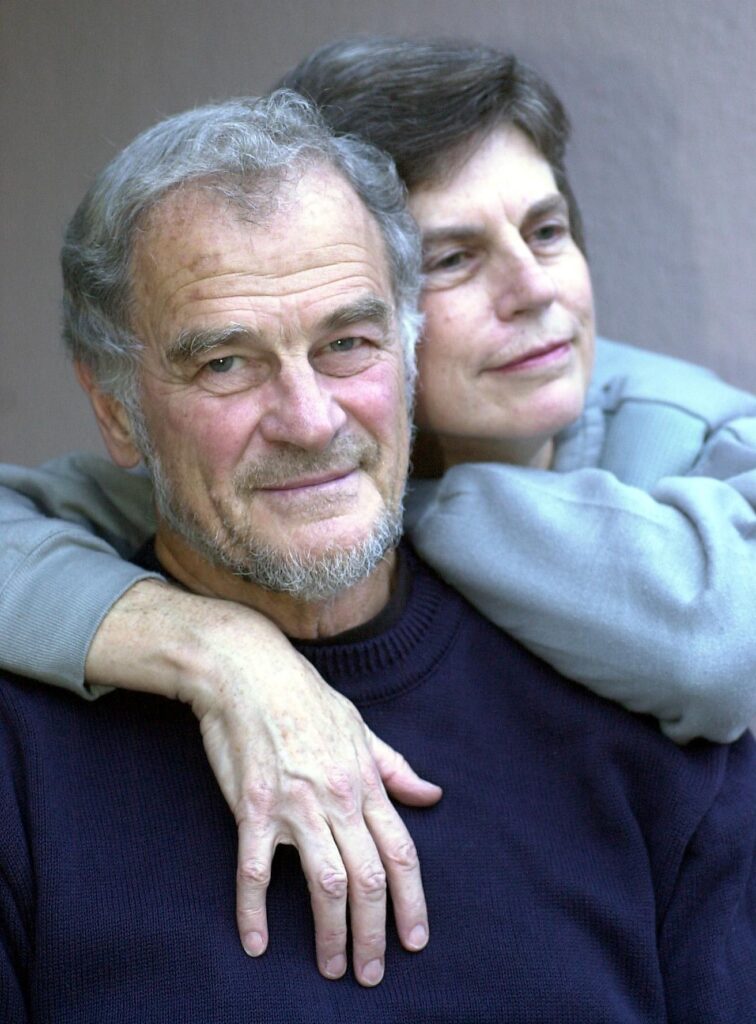
He had written President George W. Bush a letter two years earlier, encouraging a nonviolent response to the terrorist attacks of Sept. 11, 2001. “If there is any enemy here, it’s violence,” he wrote. “We need to protest and boycott violence because we eat, drink and sleep it in our country; we are entertained by it. If we don’t stop, we’re just going to join in an unending cycle of violence, like an escalator that keeps going up and up and up.”
He never heard from the White House.
In August, Liteky’s wife Judy died at the age of 74, just five months before her husband’s death.
Liteky once explained that he tried to live life as he saw it at the time but that was a very costly thing. “I’ve lost a lot. I’m an ex-lot of things. But what have I got? My integrity.”
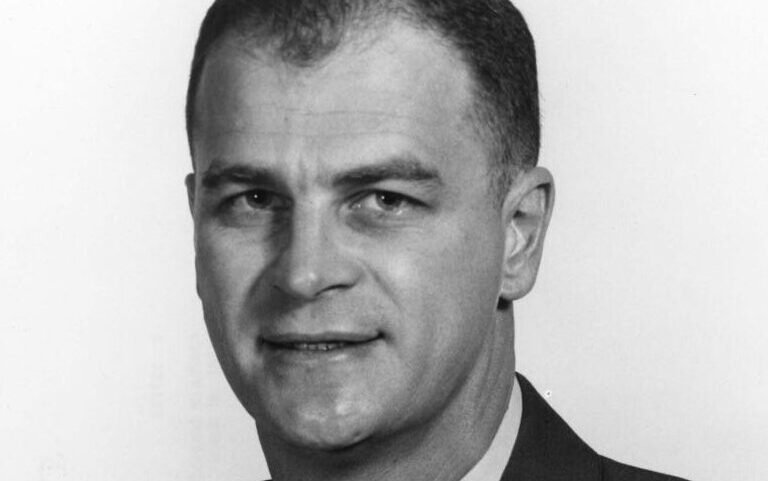
i am moved by this persons quest for doing the best he can do for his fellow man
On 6 Dec 67, Capt Liteky distinguished himself by saving troops of Alpha Co, 4/12, 199th Light Infantry. The battle was near fire base Nausah. The battle took the life’s of 20+ troops that is considered the most costly in life’s of Redcatchers.
My unit of Alpha Co, 2/3, 199th was assigned to Nausah after the battle.